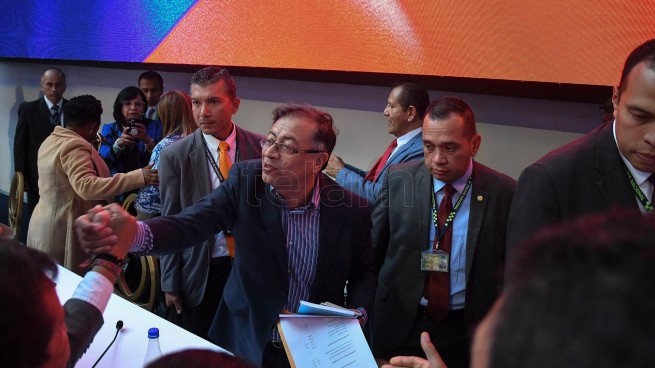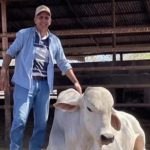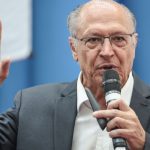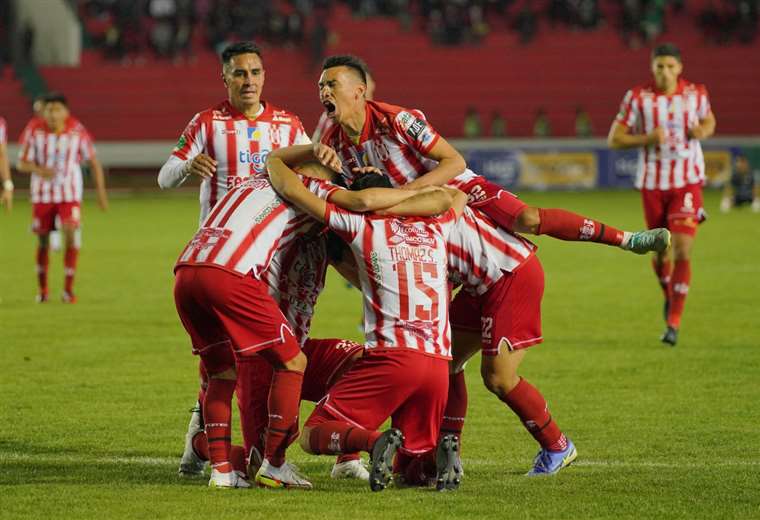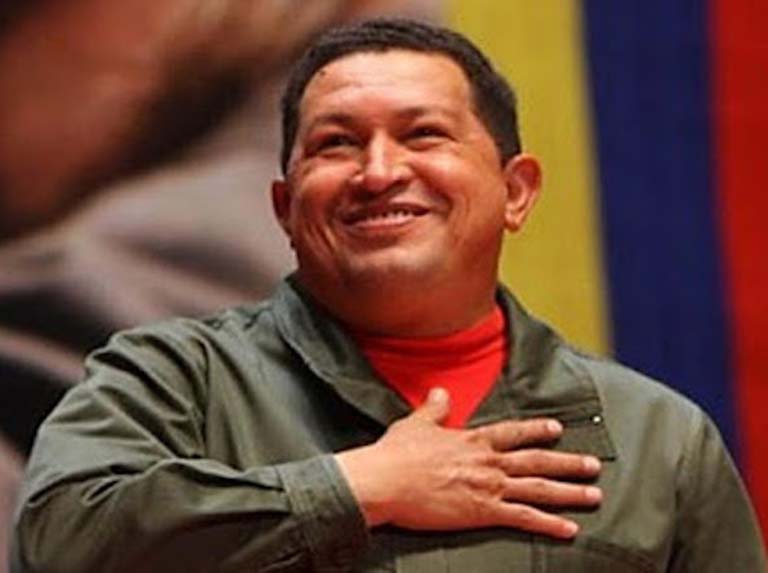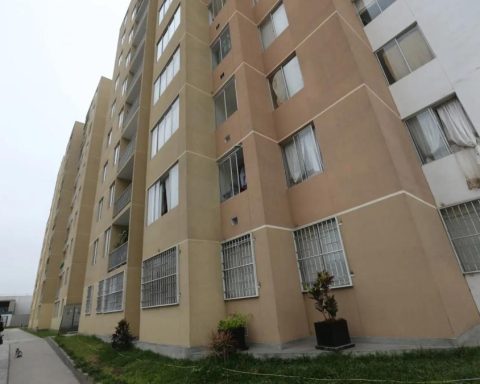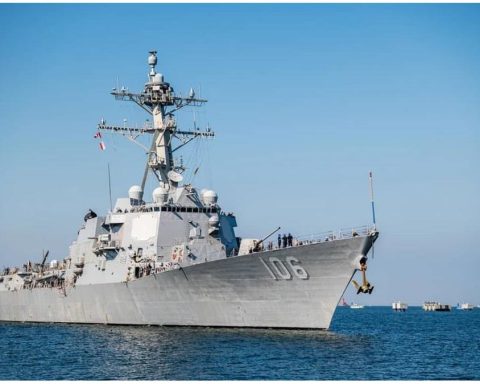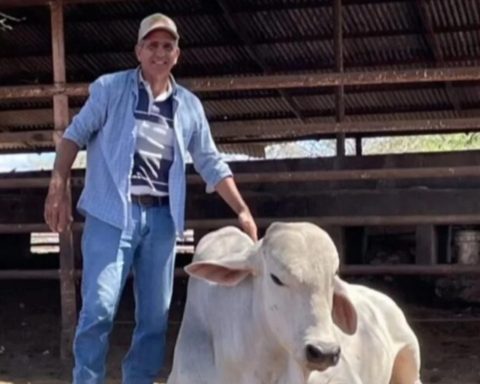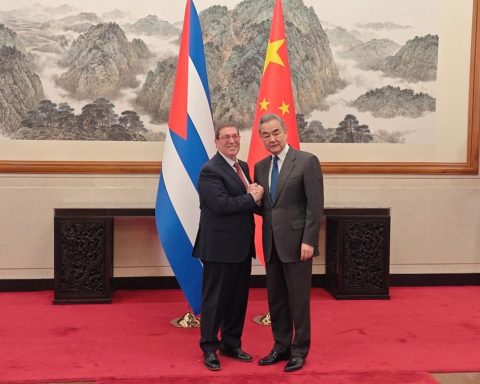Gustavo Petro assumes the presidency of Colombia this Sunday in what will be the first leftist proposal that seeks to put an end to seven decades of conservative governments, with the challenge of consolidating majorities to advance towards the pacification of the country, reversing inequality and responding to the expectations of change that demanded more than 11 million voters, in a ceremony in Bogotá attended by leaders from around the world, among them Alberto Fernandez.
The 62-year-old economist and former mayor of Bogotá established himself as the next occupant of the Casa de Nariño (headquarters of the Colombian Government) until 2026 after his victory in the ballot on June 19, in which his Historic Pact coalition won with 50.47% of the votes over the liberal politician and businessman Rodolfo Hernández .
Petro will succeed the government of outgoing President Iván Duque (with almost 70% disapproval), which was marked by its breach of the 2016 Peace Agreements, the failure of its tax reform and criticism of its management framed in the so-called National Strike born in 2019 and which spread with successive protests until 2021, and in which the Inter-American Commission on Human Rights (IACHR) confirmed the disproportionate use of force, disappearances, among other crimes.
The deficits around the fulfillment and extension of the Peace Agreements will be one of the main challenges of the next occupant of Casa Nariño, in a country in which, according to the International Committee of the Red Cross (ICRC), there are 6 armed conflicts still in force .
The incoming government, as well as the National Liberation Army (ELN), have already expressed their willingness to dialogue on the way to achieving “total peace.” Specialists warn of the dangers of changing the status quo in a country where resistance is usually violent.
The campaign that brought Petro to the presidency
The Historic Pact campaign, an alliance with various leftist parties, was underpinned after the first round by the figure of Vice President Francia Márquez, the environmentalist leader who had been Petro’s rival in the March primaries, but with whom he closed ranks in a historical armed facing the presidential elections.
Faced with the uncertainty generated by his figure for the establishment and the post-first round scenario, in which Hernández had been almost 13 points below, but it was feared that he would align the conservatives behind him in the ballot, Petro called for a Great Agreement National with center parties, among them the Liberal.
The agreements that he drew up after his victory translated into appointments in his cabinet, as well as the formation of majorities in Congress based on a series of reforms.
the future cabinet
As for the cabinet, the incoming government will combine, on the one hand, progressive technocratic leaderships -such as José Antonio Campo in Finance or Alejandro Gaviria in Education- that could reassure the establishment; and on the other to allies from its base, such as indigenous leaders in important positions and a human rights leader, Danilo Rueda, as High Commissioner for Peace, in addition to adding regional and youth leaders.
Although the names of the main ministers are already known, some positions still remain to be appointed, while the announced creation of two new ministries is finalized: that of Equality, which will be in charge of the vice president; and that of Peace, Security and Coexistence, on which the Colombian Police would depend, which is still in Defense. These new portfolios must be approved by Congress.
The expansion of alliances was also staged in Congress, where although Petro managed to have a majority thanks to the fact that different benches declared themselves as the “governing party”, now they must support them because it will not be an “automatic” support.
The Historical Pact managed to retain the presidency of both chambers -which will be led by David Racero and Roy Barreras- at least by 2022.
This will also be a Legislative Assembly with almost two thirds of new congressmen, which increased the participation of women (still at a meager 28.5%) and which for the first time will include representatives elected by the Special Transitory Circumscriptions born from the Peace Agreements. from 2016.
The Congress, which officially began operating in July, is preparing to deal with the five main projects that Petro will promote in 2022: political reform, tax reform, rural reform, the creation of ministries and the preparation of its Development Plan. , set by the Constitution so that governments adapt their campaign promises to a specific plan.
After the election, the Duque government together with Petro began the transition process through their appointees in a splicing commission, which days ago published a report that included a description of “critical alerts” and a “traffic light” with recommendations on whether to continue or discontinue legacy policies.
The main emergencies, according to the commission, will be the fiscal deficit, the “unsustainability of the Health system” (with accumulated debts and “corruption risks”), decapitalization in the Agriculture portfolio, among other problems in areas such as Mining and Energy.
The energy transition and the rejection of fracking, part of the “green” agenda of Petro and Márquez, pose great challenges in a country whose main exporter is the oil industry and which becomes more valuable in times of international dispute over energy resources.
In foreign policy, there was little anticipation: he announced that he will resume relations with Venezuela -in July the appointed Foreign Minister Álvaro Leyva, and his Venezuelan counterpart, Carlos Faría, sealed an agreement to resume diplomatic ties-; he promised to review free trade agreements, has not questioned the foundations of the relationship with the United States, shows a certain openness towards China and proposes “a dialogue in the Americas without exclusions.”
Preparations for the inauguration
The transfer of command ceremony will be held in the Plaza de Bolívar, in the center of Bogotá, where, in addition to the presence of leaders and international delegations, more than 100,000 people are expected to attend, who will also enjoy cultural shows.
In addition to Alberto Fernández, the presidents Luis Arce (Bolivia), Gabriel Boric (Chile); Rodrigo Chavez (Costa Rica); Guillermo Lasso (Ecuador); Xiomara Castro (Honduras); Laurentino Cortizo (Panama); Mario Abdo Benítez (Paraguay) and Luis Abinader (Dominican Republic).
Likewise, King Felipe VI of Spain, a delegation of US officials, the head of government of Curaçao, Bernard Whiteman, the vice presidents of El Salvador, Félix Ulloa; from Peru, Dina Boluarte -after Congress did not give President Pedro Castillo permission to leave the country-; from Uruguay, Beatriz Argimón; the foreign minister of Brazil, Carlos França; and the first lady of Mexico, Beatriz Gutiérrez.
